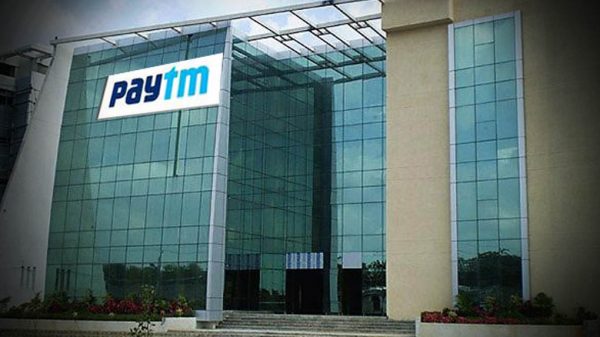Guest post by Gautam John. This post was originally published here. Emphasis (bold) in the post below has been added by MediaNama.
 I joined Pratham Books in September 2007 for a six-month internship and it was soon obvious that I’d be there much longer. Their mission of “A Book in Every Child’s Hand”, the people and the organisation were fantastic and I ended up working there for five years. Currently, I am an advisor to Pratham Books.
I joined Pratham Books in September 2007 for a six-month internship and it was soon obvious that I’d be there much longer. Their mission of “A Book in Every Child’s Hand”, the people and the organisation were fantastic and I ended up working there for five years. Currently, I am an advisor to Pratham Books.
Over the course of my first year, the mission and ways one could use to achieve the scale required without necessarily growing the organisation proportionally fascinated me. We reached out, via multiple channels and networks, to possible partner organisations who could use our content and the Nepal wing of the One Laptop Per Child project and the Open Learning Exchange, Nepal were the first who wrote to us asking if we could provide content for their project in multiple ways: On their low cost laptops being distributed for children’s use, in their eBook library and translated into Nepali for local use.
These were exciting opportunities. But we soon realised the limitations of traditional copyright law and the administrative overhead involved in bi/multilateral negotiations of agreements for content licensing and reuse – none of which we had the bandwidth or wherewithal to engage in. Creative Commons licenses seemed to be a possible way around this problem and in November 2008 we took the plunge and licensed six books under a Creative Commons Attribution-Non-Commercial-Share-Alike India 2.5 Licence. (This is the blog post announcing the plunge. )
Our idea was to test the waters and see what came of this openly licensed content. One Laptop Per Child project and the Open Learning Exchange, Nepal were most enthusiastic partners and distributed our content to children who would otherwise not have had access to our books in languages that we did not publish in. It did appear that our early foray in to the Commons was a moderate success.
However, while this was a big leap for us as a publisher, it did have some push back from the larger community as Philipp Schmidt’s comment points out: “… the NonCommercial option makes things unnecessarily complicated, but since they are part of a larger commercial publisher, I suspect it was the mother company’s fear of the unknown (Share What?) that meant it would be non-commercial or non-Creative Commons.”
Simultaneously, I was also growing more aware of “openness” as an important trend along with the strength of the Internet. It opens up communities and enables new platforms. It was obvious that a dramatic revision of existing publishing models was possible and long overdue. I was also curious as to the nature of a social publishing model that could be built using connected communities collaborating around openly licensed content.
Over the course of 2009, we, internally, debated the idea of using more liberal Creative Commons licenses and the Pratham Books Board was very supportive of the idea of licensing a subset of our catalogue under a Creative Commons Attribution license. We decided to license about 400 books under a Creative Commons Attribution license and make them available on Scribd and the illustrations on Flickr and began uploading these in October 2009. However, for various reasons, we only ever managed to upload around 173 of these books with the remaining CC licensed books never having been uploaded to Scribd and Flickr and is a process we have only recently restarted.
As we wrote in our case study, the Creative Commons licensing model is one that helped Pratham Books achieve many of its aims of flexibility, scalability, and its mission of placing a book in every child’s hands. We have been able to tap into a common value system of sharing and openness with a growing community of users and this has increased the scale and reach of our efforts. We have been able to license content to multiple organizations and individuals, both known and unknown, with a one-time effort of releasing them under a Creative Commons license, as opposed to the traditional model which involved time consuming negotiations and discussions with each known organization or individual who wanted to use our content.
This has formed a strong foundation for our social publishing model.
We have been heartened to see communities create multiple derivative works ranging from iPad and iPhone applications, to porting such works to OLPC laptops, to creating entirely new books from existing illustrations and creating versions of their books for the print impaired – from DAISY and Braille books to rich audio books such that we are now closer to fulfilling our mission of reaching every single child. We continue to track these efforts and are always amazed at what communities create and have been stunned at the traction some of these have achieved. Forexample, our books on Scribd have been read close to half a million times, on the International Children’s Digital Library we have had over half a million views and have been downloaded on various applications over a quarter of a million times. And in Nepal, where it all began, our books have been loaded on servers in seventy-seven schools and around twenty thousand children have access to these books. We also are fairly certain that the books have been used elsewhere and in different ways (For example, downloaded, printed and distributed – we have seen this happen but do not have any way of tracking such usage.)
The Creative Commons model has extended the Pratham Books mission in ways that we could never have envisioned but a question we have constantly grappled with is whether making our books available under an open license and, for free, online has a negative impact on sales. While anecdotally we believed it did not have much of an impact on sales, we lacked data that proved or disproved the hypothesis – until now.
Given that we had a set of around 400 CC licensed books, of which we had uploaded only around half, and that the selection of those uploaded to those not uploaded was more driven by chance than design, we found that we could compare the sales figures for those CC books available online on Scribd to those that had not been uploaded to Scribd.
We first looked at the individual books to see sales patterns over time and it did seem that the books on Scribd outsold the ones not on Scribd but it was hard to infer the significance of this or the margin of difference between the two when looking at individual books’ sales.
We then looked at the cumulative sales, of books on and not on Scribd, over time and it was clearer that books on Scribd certainly seemed to outsell books not on Scribd.
Lastly, when we looked at the cumulative sales data for CC books that were available on Scribd vs. CC books that were not available on Scribd, we were astounded to see that the former outsold the latter in such dramatic fashion in almost a 3:1 ratio. While we would be hesitant to say, given the specifics of our market and our model, that making books openly licensed and available online increased sales, we are a lot more confident in claiming that, at worst, it does not seem to depress sales of those books. And that, in itself, is an important learning for us and as it should be for the rest of the publishing industry.
If nothing else making some part of your catalogue available online is a powerful way to build your community, your brand and engage audiences because content is marketing in itself. We were fortunate that this also helps us get closer to a book in every child’s hand in ways that still amaze us. The International Literacy Day events from last year are a fine example.
We hope our experiences and evidence will encourage other publishers to start making their content available online, in toto, and even consider openly licensing some part of their catalogue.
Author profile:
Gautam John started out as a lawyer with a focus on Intellectual Property Laws. Post that, he has been an entrepreneur in the food industry, an agriculturalist of sorts, worked as a small wheel in the cogs of a large company and now work in the non-profit field within the folds of education and publishing. He now works at the Akshara Foundation where I helped build and lead the Karnataka Learning Partnership project, which is a leverage, policy and advocacy project, and handle their data and technology functions as well as work on organizational strategy. Previously, he worked atPratham Books where he built the social media presence, community strategy and built an open source children’s book publishing model. Currently, he is also an advisor to Pratham Book and to STIR Education in India. Previously, he has been an advisor to Inclusive Planet, an organisation that works in the print disability space During this time, he has also been fortunate to advise a few small startups in the legal, food and social entrepreneurship spaces and have been a founding board member of the Wikimedia India Chapter. His passion is ‘access’ as applied to knowledge and information.
































